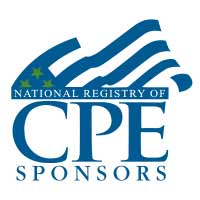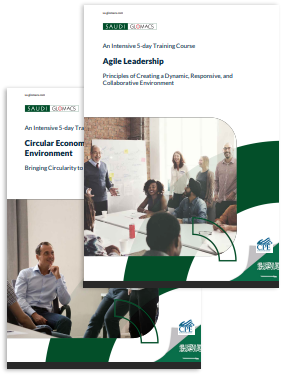An Interactive 10-Day Training Course
Upstream Petroleum Contracts, Accounting & Auditing Policies and Procedures
An In-depth Guide for Oil and Gas Professionals
Course Overview
This GLOMACS Upstream Petroleum Contracts, Accounting & Auditing Policies and Procedures training course provides in-depth information on the types of upstream petroleum contracts and what their differences are and what are the main contractual terms participants need to know in order to fully understand all types of Upstream Petroleum Contracts. This Contracts Management training course will comprehensively cover Production Sharing Contracts, Exploration & Production Agreement (E&P) Exploration & Exploitation Contract, License Agreement, and participants will take away essentials elements of these contracts to be effectively used in their own companies. The training course will help participants understand the practical issues involved and the pitfalls to avoid.
This training course on Upstream Petroleum Contracts, Accounting & Auditing Policies and Procedures will also develop the essential skills necessary to prepare and evaluate Upstream Petroleum Accounts and to improve the organization’s internal audit function. It focuses on the latest techniques to evaluate Financial; Operational & Social Performance as well as relevant International Financial Reporting Standards (IFRS) relevant for the preparation of accounts. Delegates will therefore be able to prepare financial statements in line with IFRS and make strategic decisions to improve financial performance of their organization. In addition, the development, monitoring and continued improvement of a highly-integrated, internal audit function will aid continued financial success, stability and growth.
This training course will highlight:
- The fundamental types of Upstream Petroleum Contracts
- The advantages and disadvantages of the different types of Upstream Petroleum Contracts and how it is suitable for specific types of projects
- Concessions, Production sharing & Risk Service Contract, important details and suitability for any oil and gas upstream project
- The role of JOA in upstream petroleum contracting Conciliation, Mediation and Settlement of Disputes
- Understanding the essentials terms of Unitization and Farm-in, Farm-Out agreements
- How to Prepare Financial Statements in line with IFRS?
- The latest international tools and techniques to develop skills of evaluation and performance measurement
- The lessons to be learnt from an evaluation of leading international Upstream Petroleum companies
- The different types of audit and the benefits to be obtained from each
- Efficient Planning, Controlling and Recording of an audit assignment
Modules
This training course is split into two modules:
Module I - Upstream Petroleum Contracts
Module II - Upstream Petroleum Accounting
Each module is structured and can be taken as a stand-alone training course; however, delegates will maximise their benefits by taking Module 1 and 2 back-to-back as a 2-week training course.
Training Outline
Module 1: Upstream Petroleum Contracts
DAY 1: Introduction and Overview of Upstream Petroleum Contracts
- Brief Overview of the O&G Industry
- Oil and Gas Terminology
- The Legal Framework to Upstream Contracts
- Introduction to Contract Formation
- Key Oil and Gas Terminology
- Oil and Gas Industry Structure
- Relationship between Different Players in the Oil and Gas Industry
- Phases of the Oil and Gas Industry
- Oil and Gas Contract Fundamentals and Legal Principles
- Territorial Water, Continental Shelf and United Nations Convention on the Law of the Sea (UNCLOS)
DAY 2: Contracting in The Upstream Sector: Ownership and Licensing
- Ownership and Exploitation of Reserves
- The ABCs of Petroleum Contracts: License-Concession Agreements, Joint Ventures, and Production-sharing Agreements
- Characteristics of Upstream Contracts
- Commercial Realities of the Oil and Gas Business
- Agreement with Resource Holders
- Ownership of Oil and Gas
- Risk Service Contracts (RSCs)
- Grant of Rights by Resource Holder
- Host Country's Legal and Regulatory Framework and Fiscal Regime - Stabilization
- Role of Host Government
- Key Issues in International Oil and Gas Contracts
- Negotiation Framework and Strategy - Objectives of Host Countries / NOCs and IOCs
- Host Government‘s Role in Upstream (Exploration & Production (E&P)) Agreements
- Overview of Upstream Operations and E&P Agreements (types and trends by region)
- Key Differences between Production Sharing Contracts (PSCs), Concessions, Service Contracts and JV Contracts
- Role of Host Government in Upstream Contracts
DAY 3: Production Sharing Contracts (PSC) & Joint Operating Agreements (JOA)
- Commercial Terms in Licensing and Concession Agreements
- Fiscal Arrangements, License Fees
- Five Key Financial Aspects to a PSC:
- Royalty, The R factor
- Cost Oil
- Profit Oil
- Taxation
- Bonuses, Penalties
- PSC – Cash Flow Distribution
- PSC – CF Distribution Example – Year N+1
- Comparison of Fiscal Systems
- Joint Operating Agreements (JOAs)
- What is a Joint Operating Agreement (JOA)?
- Nature, Aim and Functions of a Joint Venture
- Government Approval
- Key Areas of the JOA
- Purpose and Scope: Participating Interests
DAY 4: Service Contracts, Farm-In and Farm-Out and Unitization - Risk Bearing and Non- Risk Bearing Service Contracts
- Participation Agreements (Farm-in and Farm-out)
- Agreements for Farm-ins and Farm-outs
- Nature of the Farm-out
- Subject Matter of the Farm-out
- Interest Assigned and Reserved
- Assignment of Interest
- Unitization and Unit Operating Agreements (UUOAs)
- What is unitization?
- Unitization in Practice
- Government Approval
- Transboundary Unitization
DAY 5: Negotiating Production Sharing Contracts
- Government Take
- Production Share and Cost Recovery
- Local Content
- Force Majeure
- Dispute Resolution
- Stabilization and Renegotiation Provisions
Negotiation Simulation Exercise
- Negotiation a PSA with a Government Entity
- Objective: The objective is to establish what can be achieved in the meeting, what preparation is needed for it and what strategy should be adopted and then to pursue this strategy
- Feedback Session
Negotiation of Oil and Gas Disputes
- Importance of Negotiation in Oil and Gas Business
- Disadvantages of Competitive or Positional Negotiation
- Principled Negotiation between the Parties to Achieve Best Results
Module 2: Upstream Petroleum Accounting
DAY 6: Major Accounting & Auditing Issues in the Upstream Petroleum Sector
- The Latest Accounting & Auditing Issues Facing the Sector
- The Impact of Commodity Prices, Currency & Interest Rate Fluctuations and Political and Environmental Developments
- The Impact of Financial and Accounting Issues on Strategic Development and Growth within the Sector
- The Annual Reports & Financial Statements of Leading International Petroleum Companies
- An Overview of IFRS in Relation to Upstream Oil & Gas Accounting
- The Role of Auditing
DAY 7: Accounting for Revenue & Costs in the Upstream Petroleum Sector
- Revenue Recognition & IFRS 15: Revenue from Contracts with Customers
- Costs in Acquisition, Exploration, Development and Production
- IFRS 6: Exploration for and Evaluation of Mineral Assets
- Accounting Approaches - The "Successful Efforts" (SE) Method or the "Full Cost" (FC) Method
- Break Even Oil, Cost Oil & Profit Oil
- Evaluating Profitability of Leading International Oil & Gas Companies
DAY 8: Accounting for Assets in the Upstream Petroleum Sector
- Reserves & Resources
- IAS 16: Property, Plant and Equipment
- Depletion, Depreciation & Amortisation (“DD&A”)
- IAS 36: Impairment of Assets
- IAS 37 – 39 : Provisions, Contingent Liabilities and Contingent Assets; Intangible Assets and Financial Instruments
- Evaluating the Assets & Reserves of Leading International Petroleum Companies
DAY 9: Creative Accounting, Corporate Governance & Auditing
- Creative Accounting
- Corporate Governance
- Published Financial Statements
- The Role of the Board & Audit Committee
- External Auditing - Reporting to investors in the Oil & Gas industry
- Internal Auditing - Defining and Developing the Internal Audit Process
DAY 10: The Internal Audit Function
- Establishing the Roles & Staff within the Internal Audit Department
- The Various Types of Audits
- Planning & Commencing Internal Audit Examinations
- Controls & Substantive Tests
- Communicating Audit Findings
- The Audit Exit Conference Meeting & Post-Audit Reviews
Certificates
- On successful completion of this training course, GLOMACS Certificate will be awarded to the delegates
- Continuing Professional Education credits (CPE) : In accordance with the standards of the National Registry of CPE Sponsor, one CPE credit is granted per 50 minutes of attendance
Accreditation


GLOMACS is registered with NASBA as a sponsor of Continuing Professional Education (CPE) on the National Registry of CPE Sponsors. NASBA have final authority on the acceptance of individual courses for CPE credit. Complaints regarding registered sponsors may be submitted to the National Registry of CPE Sponsors through its website: www.learningmarket.org.
All Training Seminars delivered by GLOMACS by default are eligible for CPE Credit.


About Saudi Glomacs
At Saudi GLOMACS, we specialize in delivering world-class training courses in Saudi Arabia and across various international locations. Our training courses are tailored to meet the unique demands of Saudi Vision 2030 and the Human Capability Development Program, focusing on empowering Saudi citizens and enhancing workforce skills. We offer diverse courses spanning leadership, management, engineering, and technical disciplines to cultivate expertise and drive professional growth. Our flexible learning options—whether in-person, online, or in-house—ensure accessibility and convenience for individuals and organizations alike.
With over 30+ years of experience through the GLOMACS global network, we are committed to delivering innovative, results-driven training solutions. Our expert instructors combine industry knowledge with dynamic teaching methods, fostering practical skill development and long-term career success. By choosing Saudi GLOMACS, you're investing in personal excellence and contributing to the Kingdom’s sustainable economic growth and vision-driven transformation.
What do you need to learn next?
Check our list of courses or let us customize a course for you.
View courses



